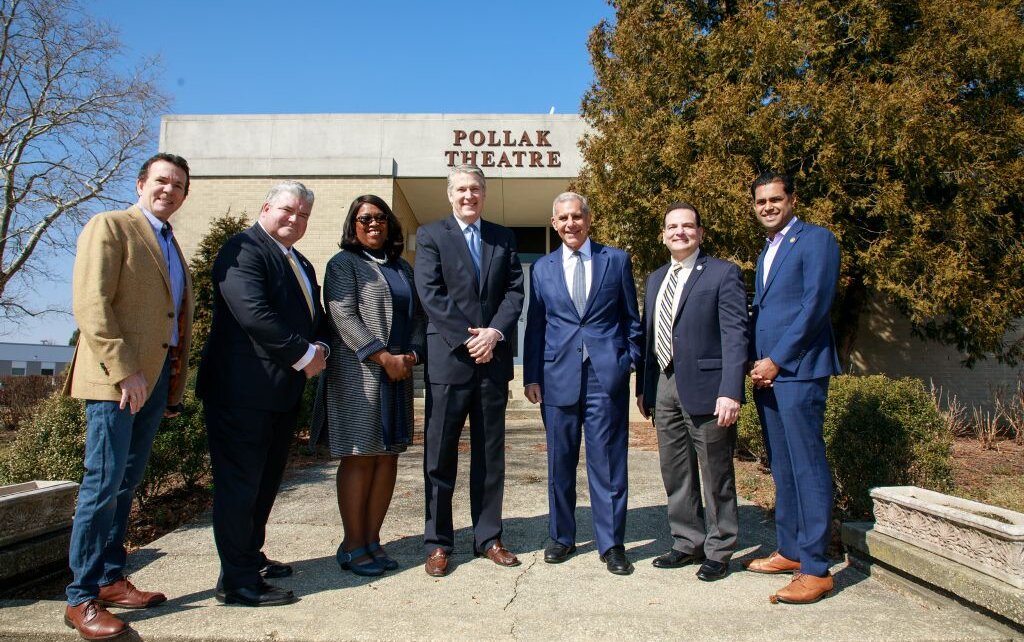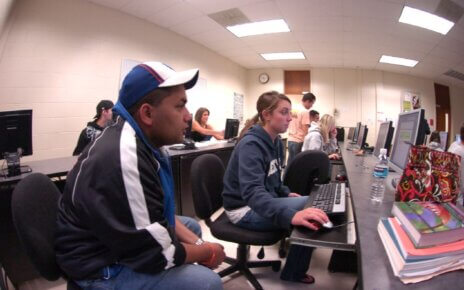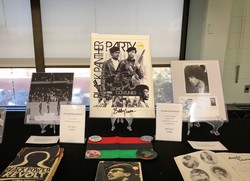Monmouth presented a virtual discussion on civil discourse with University and NJ state leaders on Wednesday, March 2. While the event was sponsored by the Office of the President and co-sponsored by the Department of Political Science and the Institute for Global Understanding (IGU), the conversation was led by NJ Senator Vin Gopal and former NJ Senator Joe Kyrillos. The two other panelists included Senate Minority Leader, Steve Oroho, and Senate President, Nick Scutari.
Pamela Scott-Johnson, Provost and Senior Vice President for Academic Affairs, welcomed the virtual audience, saying, “We are so pleased to launch this important series, discussing civility, leadership, common ground, and public service in politics. The focus of today’s discussion is how civil discourse can lead to good public policy. Who better to address the question than the leaders of their respective parties in the New Jersey legislature?”
Scott-Johnson noted her gratitude for having a part in not only facilitating this event but in heading the series as well. Additionally, she mentioned that the series would have no founding if it was not for the support of the Political Science Department and Institute for Global Understanding.
To segue away from introductions and recognitions, Scott-Johnson defined civility as “more than just politeness, although politeness is a necessary first step. Civility is about disagreeing without being disrespectful; civility is the hard work of staying present, even with those whom we have deep-rooted, fierce disagreements.”
Afterward, President Patrick Leahy took the stage, giving the audience greater context as to how the series was initiated and introducing the moderators and panelists themselves. “Senator Gopal, who is Monmouth County’s legislature as part of the 11th District, is also an adjunct professor here at Monmouth. Gopal approached me, claiming that he was lamenting the loss of civility in our politics and public service,” started Leahy. “[Gopal], a Democrat, presented the idea of teaming up with former Senator and friend of Monmouth, Joe Kyrillos, a Republican, to discuss their differing perspectives with the addition of other state leaders.” Through these discussions, it is the senators’ and University’s goal to show how civil discourse can prompt improved outcomes for the public.
As the conversation was handed-off to the University’s guests, Gopal stated, “My dear friend and colleague, Joe Kyrillos, and I have been working on issues of civility now for almost a decade.” Gopal explained that both him and Kyrillos have engaged in partisan debates as leaders in their parties yet have always maintained civility with one another. “Kyrillos is a gentleman, arguably one of the greatest defenders of his political party that his party has ever seen,” admitted Gopal. Gopal went on to highlight his co-panelists’ accomplishments, Oroho and Scutari, underscoring that they have indisputable reputations for conducting themselves both authentically and respectfully.
Kyrillos remarked on how fitting Scott-Johnson’s definition of civility was to the discussion. “This is a challenging time for our country, and there is no better time like the present to work on ways to serve the public,” said Kyrillos. “Senator Gopal, in specific, has a great touch when using the incumbency of his office to motivate outcomes and help people.”
Oroho, Republican, brought the audience’s attention to how initiatives are agreed upon and what that process looks like. “You have to talk to people, educating them on your perspective and why you feel certain bills or pieces of legislation should be changed,” recommended Oroho. He noted that as he progressed in his career in politics, he became increasingly more educated, taking into consideration the opinions and input of those around him, like Senator Scutari, a Democrat.
Scutari said, “A lot of times I get along much better with members of the Republican party than I do with my own caucus. But all in all, the members of the legislature work very hard on behalf of their constituents, and I am convinced everyone there is there for the right reasons…Speaking with your colleagues outside the boundaries of work is helpful because you see more than just a person who disagrees with you. I believe that people are more apt to work on bills when they know where you are from, your family story, etc.” This idea of open communication was a central theme to the panelists’ discussion.
Oroho added to a point mentioned by Scutari about constituents. “We actually reach across the aisle more often when a constituent contacts us asking for help. You don’t know what party that constituent aligns with, but that doesn’t matter because you have to work with other legislatures and districts to resolve those issues,” reconciled Oroho.
Towards the end of the webinar, the politicians took the time to consider the current state of events, particularly President Joe Biden’s recent State of the Union Address about the Russian-Ukrainian conflict. According to Scutari, the world still looks to the United States as a global superpower, especially when another nation’s democracy is in danger of being compromised. The panelists largely agreed that upholding the democratic process has to start on the state level.
Kyrillos closed the panel’s discussion by saying, “This could be a historic moment for Monmouth.”




